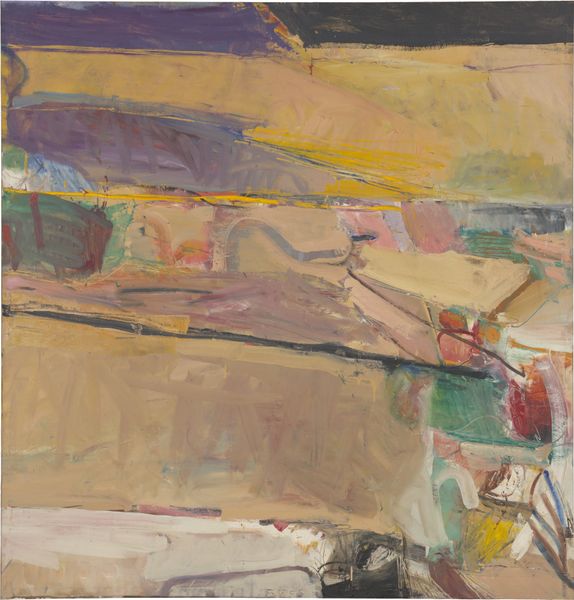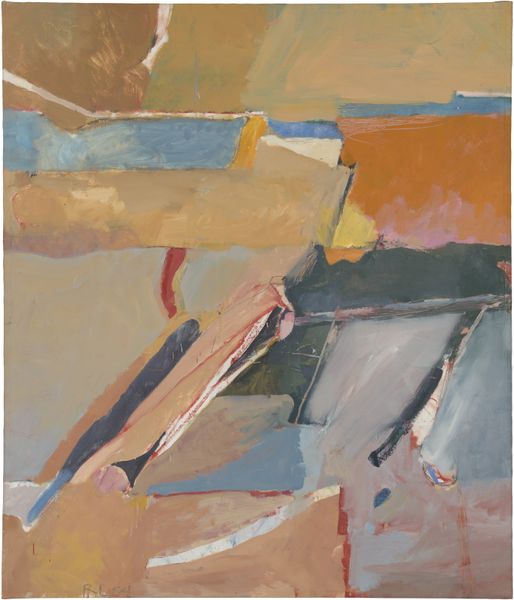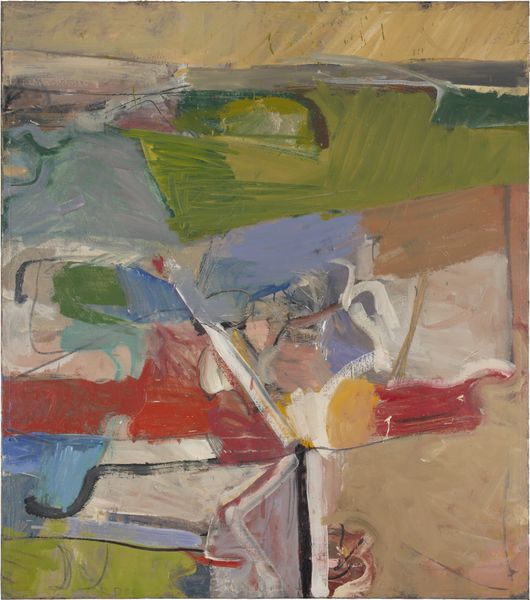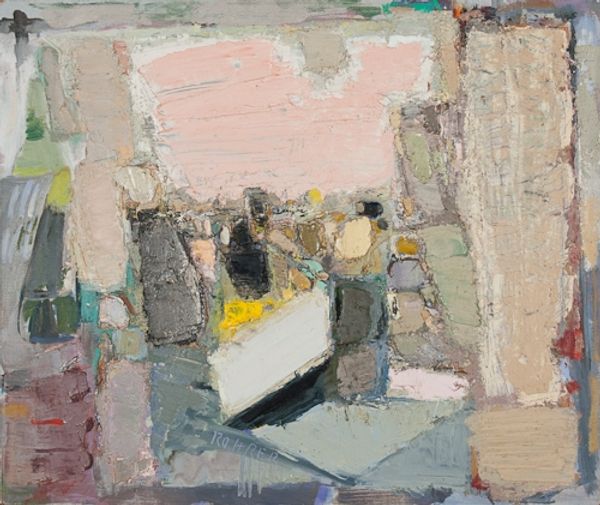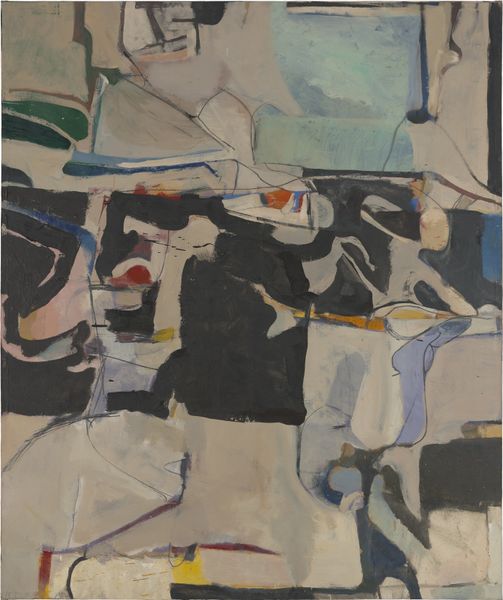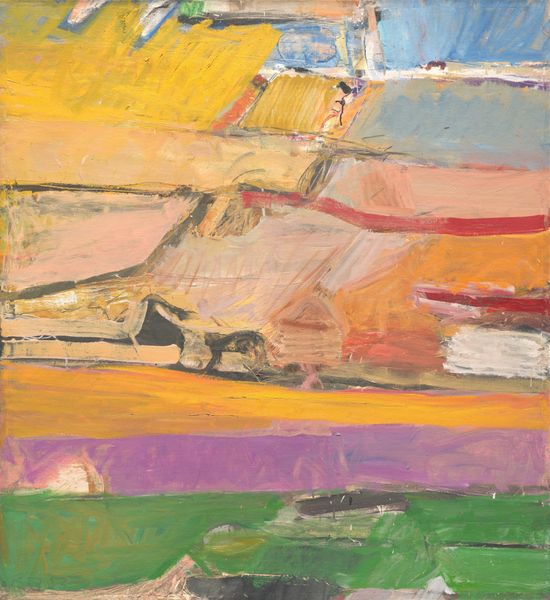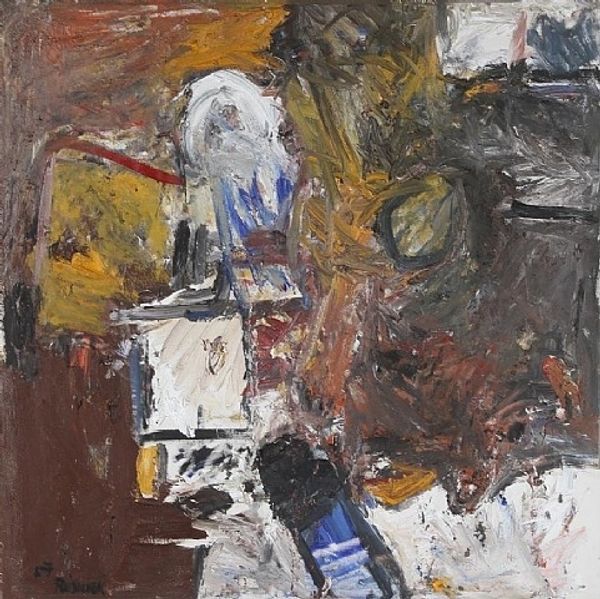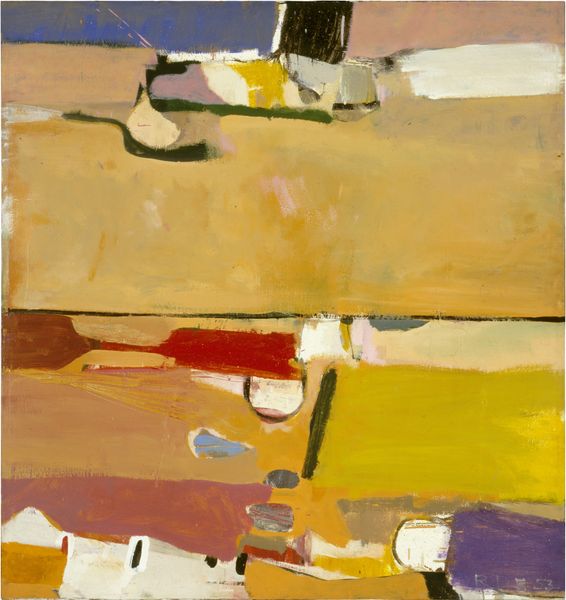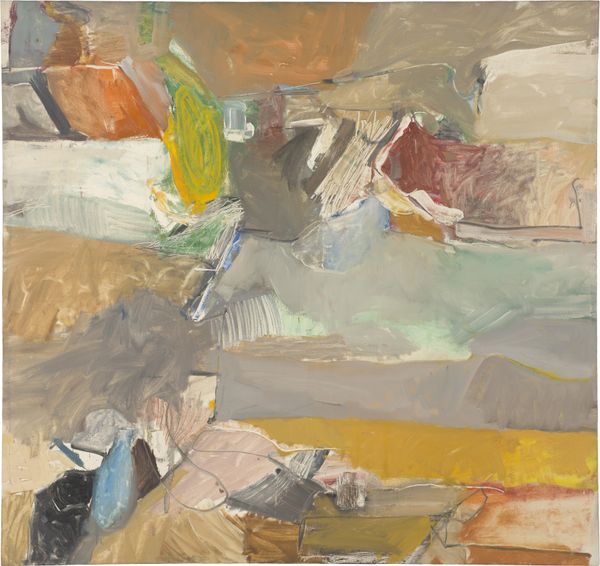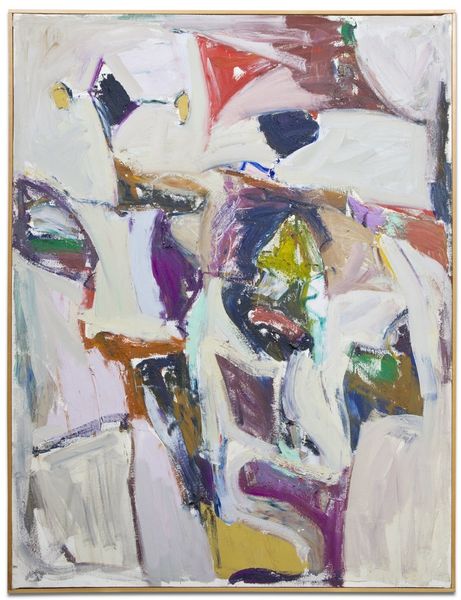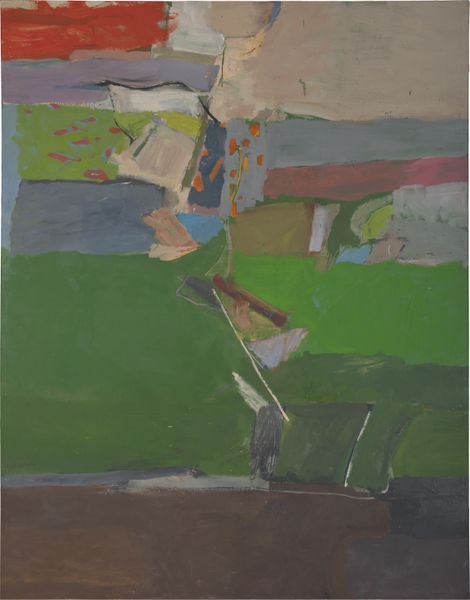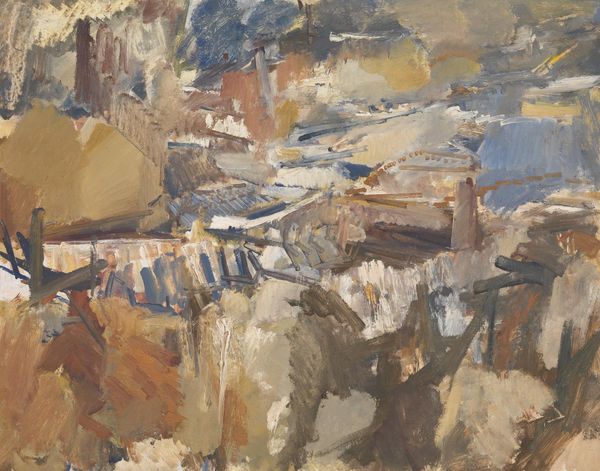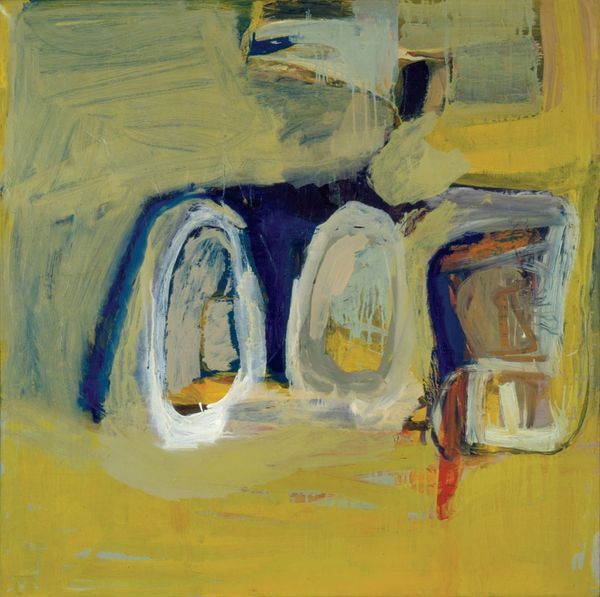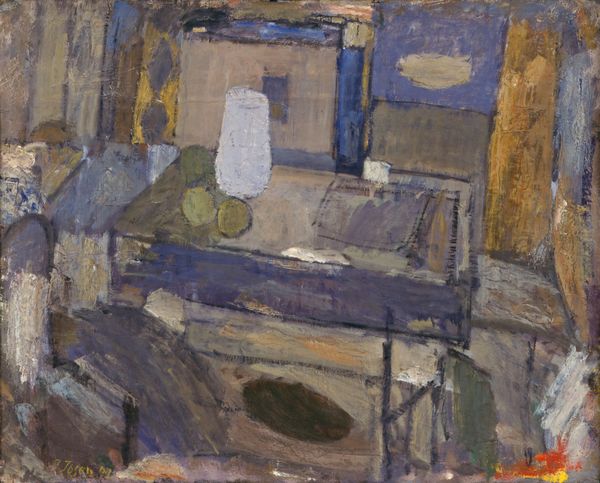
oil-paint
#
abstract-expressionism
#
abstract expressionism
#
oil-paint
#
landscape
#
painted
#
oil painting
#
abstraction
#
modernism
Copyright: Warren Rohrer,Fair Use
Curator: Standing before us is Warren Rohrer's "Pond Reflection," an oil on canvas completed in 1967. Editor: Immediately, I'm struck by the subdued palette, all muted earth tones, and how the composition feels both chaotic and perfectly balanced. There is something quite somber about it, wouldn’t you agree? Curator: Somber perhaps, or maybe reflective in a more literal sense, mirroring the fractured appearance of reflections on water. Look how Rohrer has divided the canvas horizontally, implying a surface bisecting the painting. It is an interesting pictorial device that both represents the real, and challenges the nature of pure abstraction. Editor: Interesting. I am more caught up in the painting's place in postwar American art. Rohrer’s style aligns with the transition from Abstract Expressionism to a more restrained, minimalist landscape painting. Consider the cultural milieu of the late 1960s – the questioning of established norms, a return to nature amid urbanization. Do you think this reflects a deeper societal shift? Curator: Undeniably. While the socio-political influences of the time inform how we receive this painting, I'm drawn to how Rohrer uses blocks of color, creating texture and depth without relying on traditional perspective. See how each shape has a dialogue with its neighbors. The lines might suggest recognizable forms – a bank, foliage – but it's the formal interplay that dominates. It is a highly structural painting. Editor: Yet, even through abstraction, the suggestion of landscape persists, hinting at a longing for pastoral ideals during a period of great social change. Perhaps the lack of vibrant color underscores the melancholy, the perceived loss of a simpler way of life. Or am I romanticizing too much? Curator: All interpretations add value to the discourse. For me, Rohrer invites us to consider painting itself: the act of applying pigment, dividing space, creating visual rhythm through repeating geometries. Editor: So ultimately, “Pond Reflection” offers a fascinating confluence of technique and social awareness. Curator: Exactly. It presents us a world seen through the lens of pure abstraction, but inevitably engages with both artistic tradition and the cultural context of its time.
Comments
No comments
Be the first to comment and join the conversation on the ultimate creative platform.
